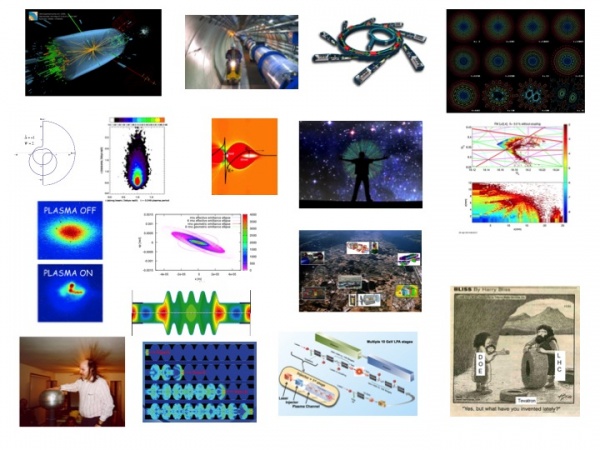Difference between revisions of "USPAS spring 2023"
YichaoJing (Talk | contribs) (→Lectures) |
(→Lectures) |
||
| Line 52: | Line 52: | ||
==Lectures== | ==Lectures== | ||
| − | *'''[[media: | + | *'''[[media:Lecture_M1_up.pdf|Monday, Lecture 1, Introduction, Hamiltonian method for accelerators..]], by Prof. Litvinenko''' |
| − | *'''[[media: | + | *'''[[media:Lecture_M2_up.pdf|Monday, Lecture 2, Parametrization of particles motion, Action and phase variables..]], by Prof. Litvinenko''' |
| − | *'''[[media: | + | *'''[[media:Lecture_M3_up.pdf|Monday, Lecture 3, Damping and Diffusion coefficients, Fokker-Plank equations, distribution functions...]], by Prof. Litvinenko''' |
*'''[[media:USPAS_2023_ecooling.pdf|Tuesday, Lecture 4-6, Electrron Cooling.]], by Prof. Jing''' | *'''[[media:USPAS_2023_ecooling.pdf|Tuesday, Lecture 4-6, Electrron Cooling.]], by Prof. Jing''' | ||
==Homeworks== | ==Homeworks== | ||
Revision as of 15:52, 27 January 2023
| Class meet time and dates | Instructors |
|---|---|
|
|
Course Overview
This graduate level course focuses on the fundamental physics and explored in depth advanced concepts of modern particle accelerators and theoretical concept related to them. he purpose of this course is to introduce students to methods of hadron beam cooling to reduce the phase-space area of beams in charged particle circular accelerators. Beam cooling enables higher beam brightness and enhanced performance in many accelerator applications. The course is designed for graduate students pursuing accelerator physics as a career, or scientists or engineers having an interest in this topic in accelerator science
Course Content
The course will start with a description of Hamiltonian and non-Hamiltonian processes in particle accelerators. Examples of beam invariants, cooling decrements and diffusion processes will be discussed. Four cooling methods - classical electron cooling, stochastic and optical stochastic cooling, and coherent electron cooling - and their applications will be presented in detail.
Lectures
- Monday, Lecture 1, Introduction, Hamiltonian method for accelerators.., by Prof. Litvinenko
- Monday, Lecture 2, Parametrization of particles motion, Action and phase variables.., by Prof. Litvinenko
- Monday, Lecture 3, Damping and Diffusion coefficients, Fokker-Plank equations, distribution functions..., by Prof. Litvinenko
- Tuesday, Lecture 4-6, Electrron Cooling., by Prof. Jing
